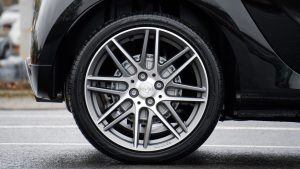
Get Yourself a Job: Seven Tips to Beginning Your Own Car Dealership
If you’ve always dreamed about having your own business, and have a love for cars, then set up your own auto dealership could be the perfect match in entrepreneur heaven. Since consumers are always in search of high-quality used and new cars. dealerships provide a great job opportunity as well as a great opportunity for career growth. To assist you in shifting the gears and being your very own boss there are seven steps to start your own auto dealership.
1. New or Used, that is the question
Before you begin to line up cars for sale it is important to determine. whether you’d prefer to operate predominantly with new or used cars sales. The choice between used and new will establish the foundation for the remainder of your business ventures. If you decide to begin your own car dealership It’s crucial to remember. how much the first investment will be significantly higher than that of a utilized car dealership. That means that you’ll probably require an investor or financing from banks.
The idea of opening a used car dealership is, however it doesn’t require an investment in the beginning. however, the earnings potential is much lower. The margin of profit for used cars is approximately 1,000, and price changes are not uncommon. In this way, you’ll save money leasing dealerships because there’s a chance that you’ll have less inventory that is used.
2. Make sure your business plan is in The Right
If you’ve decided to sell used or new cars and trucks, you’ll have to create the right business strategy for your new dealership. This is particularly the case if you require financing. A reputable dealership must begin with the cars themselves. will you sell single brands or multiples? If selling used and new vehicles is an option It’s important to mention this in your business plan.
Other requirements for a business plan include the calculation of business equipment costs as well as researching the cost of a manufacturer’s car as opposed to used car prices, the calculation of employee wages along with lease and sales agreement costs, and creating your budget for advertising. All of these elements can help you develop an effective business plan that is rooted in reality.
3. Bonding, Licensing, and insurance
There are many hurdles to overcome before you can begin selling vehicles, and one of them is obtaining a dealer’s license. If you’re looking to set up a full-time dealership, then you’ll require a dealer’s permit that allows the sale of an unlimitable amount of vehicles in a calendar year. It is required if you wish to have your sales to be into regulations of Consumer Rights and Safety laws.
In terms of bonding, you’ll require an assurance bond for your dealership. This safeguards your business from contract defaults with suppliers of vehicles, vendors, and wholesalers. Surety bonds can be a reliable means of securing transactions between you and another entity you deal with.
Every car dealership needs complete insurance coverage, regardless of whether they handle new or used vehicles or both. Insurance coverage for dealerships typically covers the general liability plan, lots of insurance, and comprehensive plans which protect everything from damage to property to loss of inventory.
4. The Salesman Trade: Learning to Learn
Simply because you have an interest in automobiles doesn’t mean that you’re a great salesperson. Retail isn’t an easy problem to solve and If you don’t wish to appear as a fraudster in the car sales industry You need to improve your sales abilities. It doesn’t matter whether you’re selling new or used vehicles, your primary objective as a salesperson is to be honest and upfront.
Everything from the overall condition of your vehicle to keeping promises made during the sales process, making sure your customers know what they’ll get is the essential element to success. Other selling skills include not being overly insistent during sales and knowing how to manage the negotiation process correctly as well as knowing the right time to allow buyers a little breathing room.
5. Find the Perfect Place
There are a few elements to consider when deciding on the location of your dealership in the automotive industry. First, you’ll need to ensure that the place you select can support your business. The greater the number of people living there is, the higher profits you’ll earn. There’s also the visibility of your location to be considered. If your property is situated placed on a narrow road or is set away from the road it’s likely to draw fewer customers.
A corner lot near an important intersection is ideal, however, an open-air location along the highway with high traffic volumes is an ideal location for a dealership. Also, there is a competition to consider. Dealerships located between each other are attractive to customers because it offers buyers the chance to walk away quickly and find a different site and an offer. This can be a positive or negative for your business, depending on which side of the spectrum you’re on.
6. Take Care of Your Inventory
If you are a dealership owner The last thing you’d like to be with is not offering enough alternatives that your potential customers can choose from. Making sales is good but having a depleting inventory isn’t. Due to this, you’ll need to play inventory chess frequently and anticipate when you’ll need to replenish your inventory and the items you’ll need to replenish with best used car deals uk.
You can monitor your vehicle’s sales and get an idea of what makes and models can provide the fastest turnaround. This is much easier for newer cars, but it’s still feasible for used vehicles. If you break down your sales into the popularity of the model and make it can help you determine whether you need to restock your inventory with more trucks and SUVs or go with smaller, efficient cars that are fuel-efficient.
7. Be On Top Of Lemon Laws
Last, but definitely not least, make sure your new dealership complies with your state’s Federal Used Car Rule and your state’s Consumer Rights and Safety laws as well as lemon laws applicable to used car dealerships. This includes stipulations regarding full disclosure of any known mechanical issues that may arise with the cars you sell through your dealership. Furthermore, laws for dealerships also contain requirements that your dealer must adhere to when providing full and limited warranties.
Read more interesting articles on NEFIC





